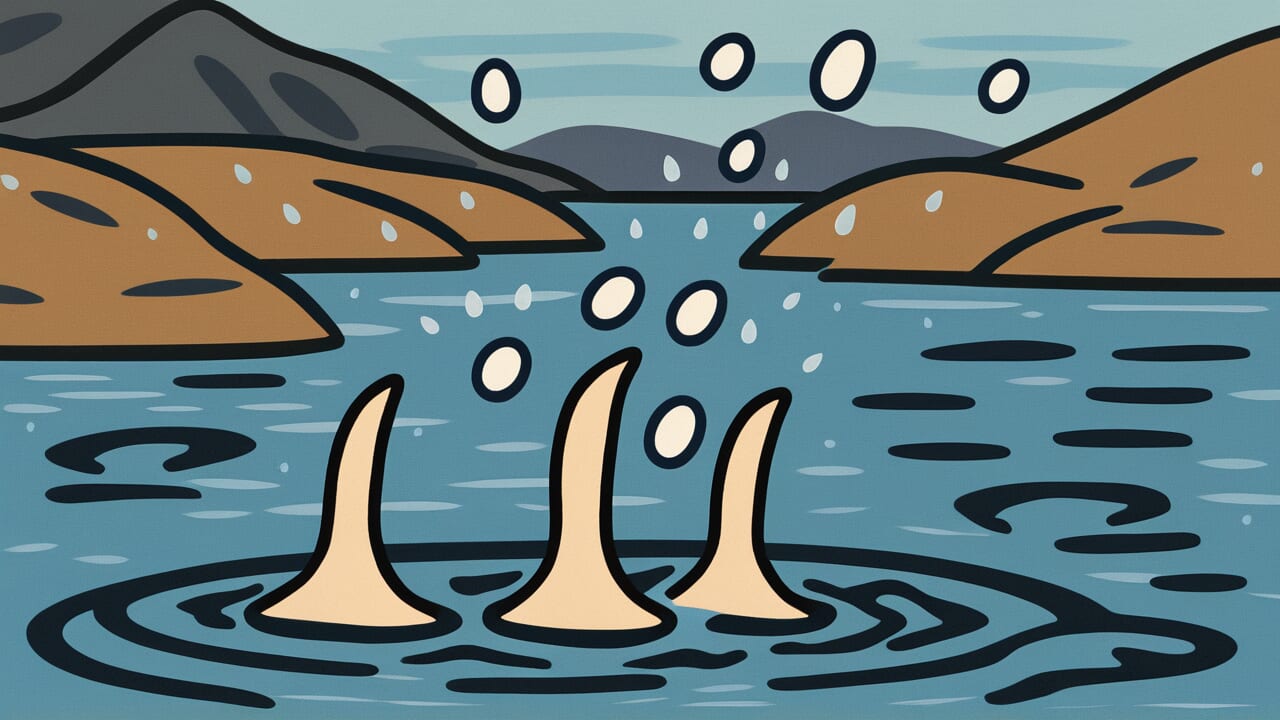How to Read “Raindrops are the Sanzu River”
Amadare wa sanzu no kawa
Meaning of “Raindrops are the Sanzu River”
“Raindrops are the Sanzu River” is a proverb that warns about the dangers waiting outside your home. Stepping beyond the raindrops falling from the eaves is as dangerous as crossing the Sanzu River that separates this world from the afterlife. This somewhat exaggerated expression teaches us to be cautious when going out.
People use this proverb when family members or loved ones are about to leave home. They want to remind them to be careful. This might seem extreme to modern people, but in times without advanced medicine or transportation, going outside was literally life-threatening.
Disease, accidents, crime, and natural disasters lurked everywhere beyond the home. Countless unpredictable dangers waited outside.
Even today, this proverb conveys a basic truth: “You never know what will happen outside.” It teaches us to recognize the weight of leaving a safe place. The memorable words remind us to always act with caution.
Origin and Etymology
No clear written records explain the origin of this proverb. However, we can make interesting observations from the words themselves.
“Amadare” means raindrops dripping from the eaves. The “Sanzu River” is a river in Buddhist thought that the dead must cross. It marks the boundary between this world and the afterlife. The proverb’s interest lies in connecting these two seemingly unrelated concepts.
The structure of traditional Japanese houses likely inspired this expression. In old Japanese homes, the eaves marked a clear boundary between inside and outside. Under the eaves was the safe “inside” territory. One step beyond meant entering the “outside” world where rain would wet you. This physical boundary became overlaid with the Sanzu River, the boundary between life and death.
Crossing beyond the dripping eaves meant stepping from the safe home into the dangerous outside world. People recognized this as crossing a significant boundary, like crossing the Sanzu River from the world of the living to the world of the dead. Our ancestors’ sensitivity combined the everyday phenomenon of raindrops with life’s dangers. This proverb captures that perception.
Usage Examples
- When my child said they wanted to travel far alone, I reminded them that raindrops are the Sanzu River, so they must be very careful
- I told the new employee going on their first overseas business trip that raindrops are the Sanzu River, so they should act cautiously
Universal Wisdom
The proverb “Raindrops are the Sanzu River” condenses a fundamental human anxiety and the wisdom to address it. Why did people compare simply crossing the eaves to crossing the boundary of death?
Humans instinctively sense special meaning in “boundaries.” Inside and outside, safety and danger, known and unknown. Something beyond our control always waits on the other side of boundaries. Once you step outside your home, the most basic safe zone, you enter a world beyond your control.
This anxiety is not unfounded. Throughout human history, the outside world has always been full of dangers. Wild beasts, hostile tribes, natural disasters, epidemics. Countless people lost their lives outside their homes. That’s why people sincerely prayed for their family’s safety when they went out.
This proverb has been passed down because the desire for loved ones’ safety never changes across time. Even if people laugh at it as overprotective, we want those we care about to be careful. This earnest feeling created an extreme expression. It reveals universal human traits: the depth of our love and the worry that comes with it.
When AI Hears This
Looking at the numbers behind water drops wearing through stone reveals surprising facts. One water drop exerts about 0.0001 joules of force on stone, essentially zero. But when one million or ten million drops accumulate, the binding energy of the stone’s crystal structure exceeds a critical point. Suddenly, a hole begins to form. At this moment, the system qualitatively changes from “solid” to “destroyed solid.”
Complexity science calls this phase transition. Just as water stays liquid at 99 degrees but suddenly becomes gas at 100 degrees, nothing happens until accumulation reaches 99.9 percent. Then at a certain point, dramatic change occurs instantly. The expression “Sanzu River” perfectly captures this irreversible phase transition. Living systems work the same way. Microscopic cell damage accumulates daily, but we appear healthy until crossing a threshold.
Interestingly, “critical slowing down” occurs just before the critical point. The system becomes sluggish in responding to external stimuli and loses resilience. Just before a hole forms, microscopic cracks on the stone’s surface must be rapidly increasing, though invisible to the eye. In other words, raindrops have been quietly preparing the path to the Sanzu River long before the moment of destruction.
Lessons for Today
This proverb teaches modern people to “consciously heighten awareness when leaving familiar environments.” In daily life, we unconsciously lower our guard. Especially with repeated actions like daily commutes to work or school, we develop a “just routine” complacency.
But the outside world is truly unpredictable. Even on your usual route, there might be construction today. Even at your usual time, a dangerous situation might be waiting today. This proverb reminds us not to forget these “ordinary dangers.”
In modern society, we can apply this proverb’s spirit as “situational awareness.” Don’t walk while looking at your smartphone. Pay attention to your surroundings on dark streets. Gather information beforehand about unfamiliar places. These small habits protect your safety.
This might sound exaggerated, but being cautious is not cowardice. It means valuing yourself and showing consideration for those who worry about you. Coming home safely can be the greatest gift to your parents.



Comments